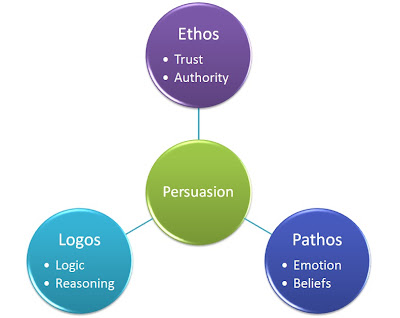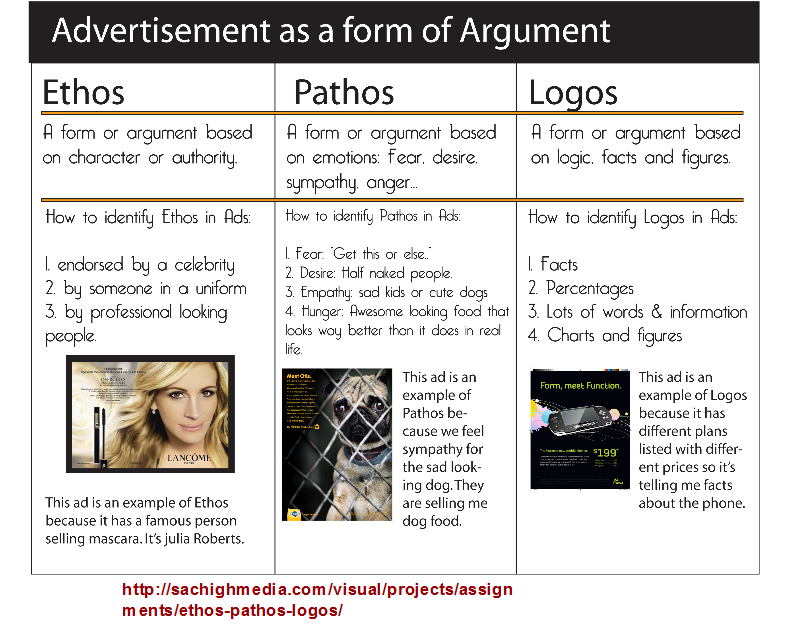
The question of what we really mean, or ought to mean, when we talk about ethos, pathos, and logos is not just an academic issue, but a practical one that extends not only to persuading juries, but to all aspects of legal argument. Contrary to what the piece in Lawyerist suggests, Aristotle didn’t equate argument with logic, and specifically didn’t consider ethos and pathos to be fallacies. This post picks up where Salzwedel’s post left off and discusses the meaning and importance of both ethos and pathos. While legal argument appropriately prefers arguments grounded in logic, the practical need to convey a complete message means that there is a perfectly appropriate role for ethos and pathos as well. Viewed in context, ethos, pathos, and logos are three pillars to the same building. But in encouraging advocates to rely only on logos, the Lawyerist piece performs a serious misreading of Aristotle and applies a very narrow interpretation of both ethos and pathos.
#LOGOS ETHOS AND PATHOS FREE#
The post includes much good advice on keeping one’s argument rationally focused and free of distraction.

Salzwedel’s point is to emphasize that “ethos and pathos are logical fallacies” because they are irrelevant to legal reasoning, and that “Aristotle will smile” on those advocates who are able to forswear them in their own advocacy and rebut the two when employed by others. In case you’re trying to remember that early college course in philosophy or public speaking, let me remind you of Aristotle’s famous trilogy: Ethos relates to your credibility, pathos lies in your ability to appeal to emotions, and logos is contained in your logical arguments.

Matthew Salzwedel in Lawyerist recently wrote about ethos, pathos, and logos in legal writing.


 0 kommentar(er)
0 kommentar(er)
